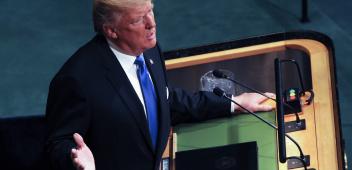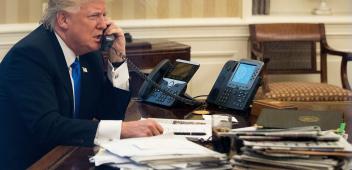We stood by the U.S. as it erred grievously in Iraq
In an opinion piece in The Australian, Lowy Institute Executive Director Dr Michael Fullilove examines the costs of the war in Iraq to the United States and the implications for the Australia-US alliance.

Executive Summary
We stood by the U.S. as it erred grievously in Iraq
Michael Fullilove
The Australian
19 April 2013
P. 10
It is right and proper that those of us outside government display a certain modesty about the retrospective judgments we make about difficult national security decisions. Schadenfreude should be avoided. It is also true, however, that history is an accumulation of retrospective judgments made by outsiders.
Politicians run for office to make history, so they well understand that history will render its judgment on their actions.
Last week, former prime minister John Howard gave a well-crafted address to the Lowy Institute revisiting Australia's decision to participate in the Iraq war.
A decade on, it is clear that former US president George W. Bush made a dreadful mistake in initiating the Iraq war.
This was a once-in-a-generation foreign policy decision, and Washington got it wrong. True, a dictator who brutalised his people and terrorised his neighbours was brought down. But the cost was horrific. As invasion mutated into occupation, insurgency and finally civil war, more than 100,000 Iraqi civilians lost their lives.
Now Iraq is something like a democracy. But it also remains unstable and violent.
Viewed through the prism of US interests, the balance sheet looks awful. Nearly 4500 US soldiers were killed and more than 30,000 wounded. The war will probably end up costing the US more than $US2 trillion ($1.9 trillion). Iraq was intended to telegraph US strength to the Middle East and the world; instead, it revealed US weakness. Rather than bolstering Washington's intimidatory powers, it undermined them. For several years, at least, it fuelled the jihadist fire and emboldened Iraq's regional rival, Iran. Numberless opinion polls prove that the war seriously diminished the international reputation of the US.
And what of the war's opportunity cost? Given that resources are finite, consider what the US might have done. It might have won the war in Afghanistan. It might have focused earlier on the challenge posed by China's rise. It might even have done some nation-building at home.
What of the line that the war was right in principle but wrong in execution? I am inclined to believe that even if red-letter mistakes such as disbanding the Iraqi army had not been made, the operation would have gone pear-shaped in some other way. Many of the troubles were predicted. Occupying Arab countries is dangerous. Building foreign states is extremely hard.
One justification for the war is that it was intended to prevent Saddam Hussein from passing his weapons of mass destruction to terrorists who would use them against the US and the West. But this argument depends on a series of assumptions and logical connections that could never have borne the weight of a massive land invasion. As we now know, Saddam did not have WMDs. Even if he had had them, there were reasons to believe he would not have handed them to terrorists. And in any case Washington had tools to hand other than regime change.
Gideon Rose, editor of Foreign Affairs, is hardly a tie-dyed bien pensant. He has recently declared the war to be ``the most egregious failure in half a century of American foreign policy''.
What about the Howard government's decision to participate in the Iraq war? Judgments here are not so clear-cut. We lost two Australian soldiers in Iraq, neither of them in combat. The financial impost for us, though significant, was not astronomical. Certainly, our involvement had reputational costs. But Howard was right to point out that some of the arguments his opponents made against Australia's participation, that it would damage our relations with Asia or draw fire from terrorists, were wrong-headed and have not eventuated.
Howard made it clear to us that alliance considerations were prominent in his thinking in 2003. That is appropriate. An alliance is a serious matter. It requires that you support your ally when it is in the right, even in the hard cases -- as Australia did by helping the Americans eject Saddam from Kuwait in 1991 and the Taliban from Afghanistan in 2002, over the opposition in both cases of segments of the Australian Left. There is no point in being an ally in name only. Indeed, our reliability as an ally contributes to our access and influence in Washington.
But our alliance does not require us to support our ally when that ally is in the wrong.
Howard's conclusion last week was that ``no compelling national interest beckoned us in the opposite direction''. There was one, however, even if Canberra did not see it at the time: our great ally was about to commit a grave error.
The Iraq war made the US weaker, poorer, less respected and less feared. Given that we rely on US power for our own security, this is something that Australians ought to regret.
______________________________
Michael Fullilove is executive director of the Lowy Institute, which hosted John Howard's address on the 10th anniversary of the start of the Iraq war.



